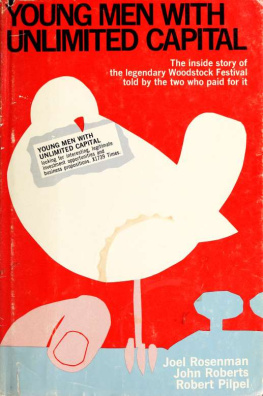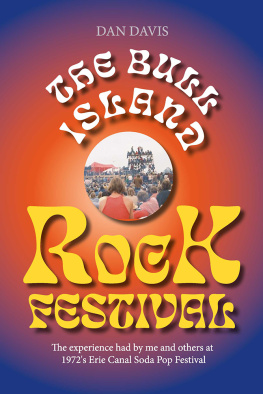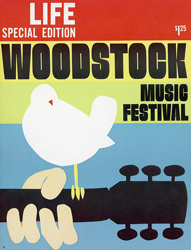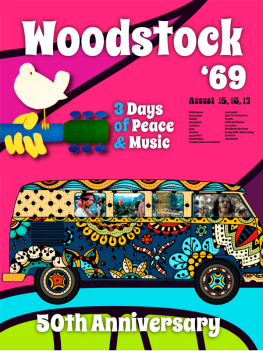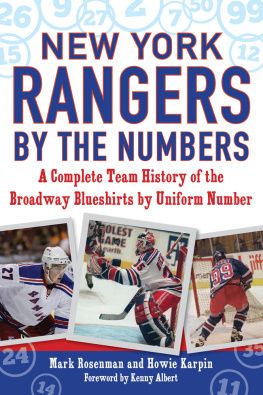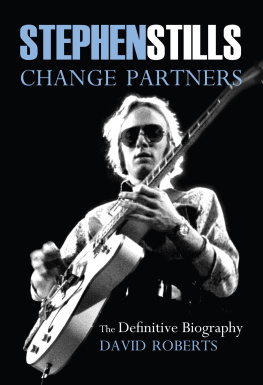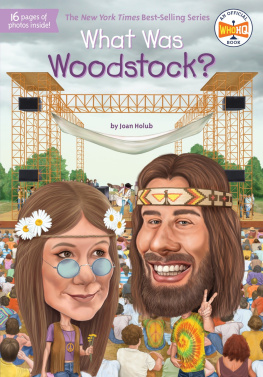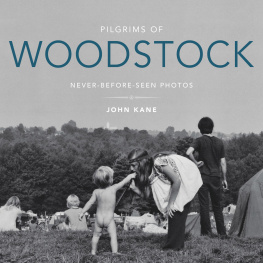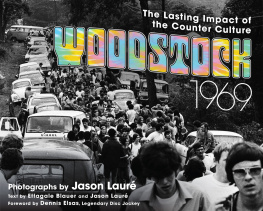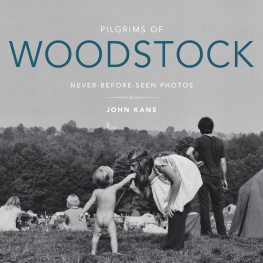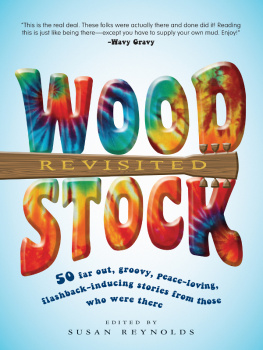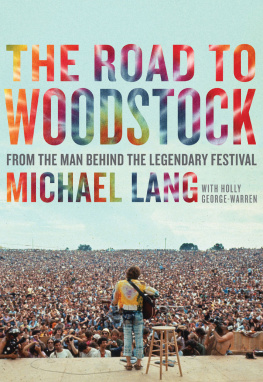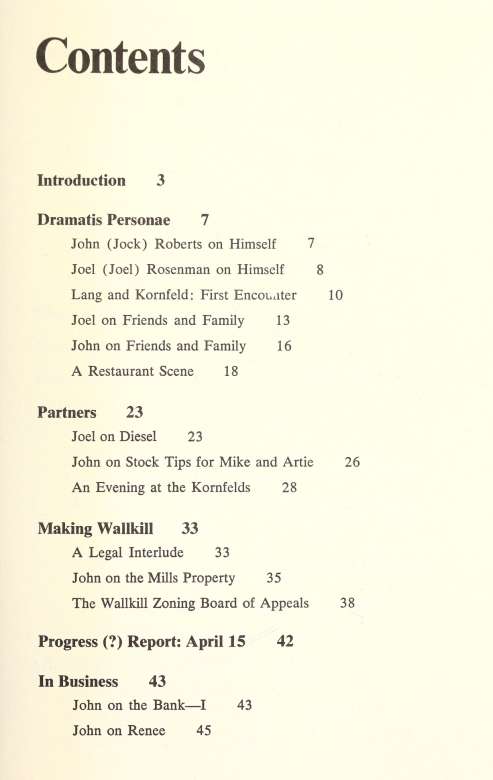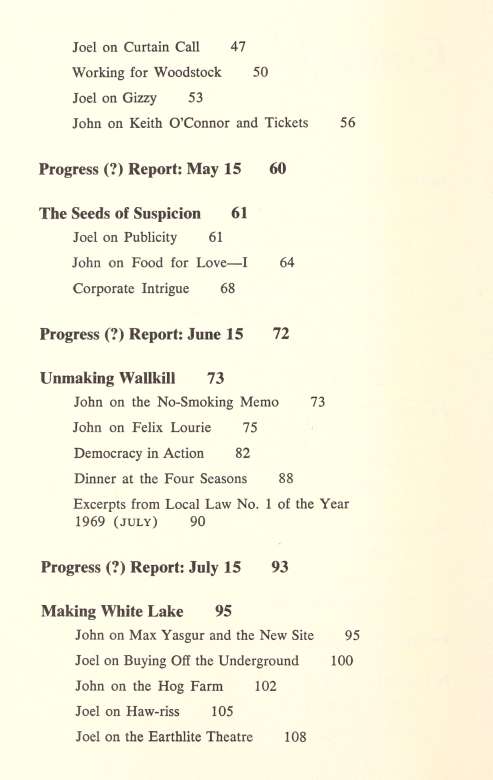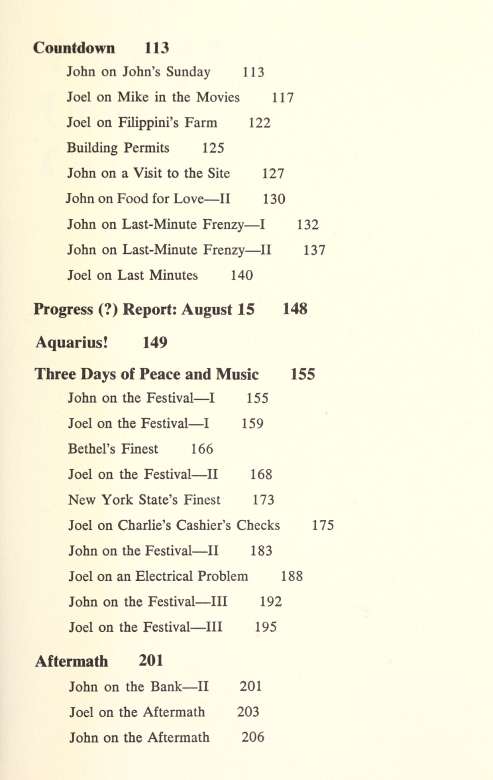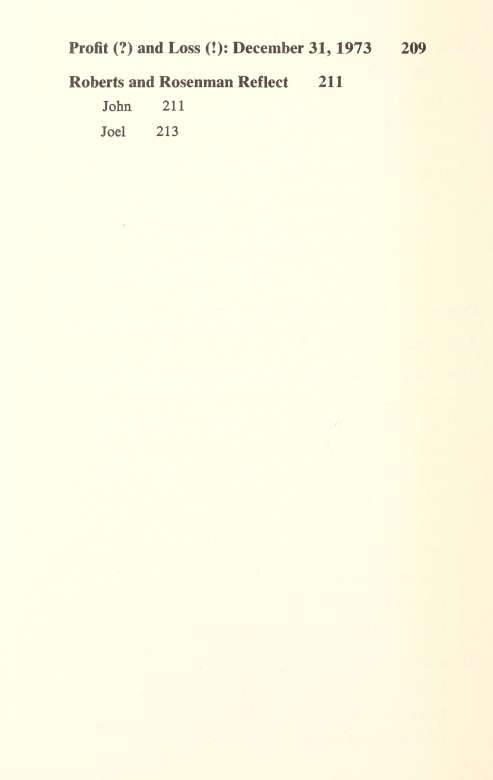This book made available by the Internet Archive.
How It Happened
For three years Bob Pilpel wrote Yale Law School chum Rosenman long letters asking, pleading, demanding that Rosen-man put his Woodstock experiences down on paper. Pilpel offered to bring to the project his own budding talents as catalyst, co-author, and slave driver. When he sweetened the confection by providing an interested publisher, Rosenman and partner, Roberts, could no longer resist.
In addition to gathering a scattered wealth of source materials, authoring the third-person anecdotes, and editing, Pilpel somehow managed to keep Rosenman and Roberts at their typewriters. What follows is the result.
Digitized by the Internet Archive in 2013
http://archive.org/details/youngmenwithunli00ros_b5a
Young Men with
Unlimited
Capital
Introduction
White Lake, New York
Sunday, August 17, 1969, 11:30 p.m.
The rain has stopped; one of those snide meteorological ironies, like the sky clearing just after your picnic's been ruined. Three miles away the biggest picnic of them all is still in progress, however, and the sounds of the celebrations drift down through the chill dampness into the quiet streets.
A green Porsche backs onto State Route 17B, faces east, and idles while the driver puts out one cigarette and lights another. His companion sits silent, his eyes empty of everything but fatigue.
Outside the town some of the weekend's debris becomes visible in the beam of the headlights. Parkedor abandoned cars dot the roadside. Litter covers mud. Mud covers litter. Headed in the opposite direction, a wrecker roars by, a "modified" Cadillac hearse in tow. The passenger in the Porsche laughs grimly to himself: an omen.
Near Monticello a sullen bedraggled girl sits at the feet of a young man with a Jewish Afro and a beard who is soliciting a ride. As the Porsche approaches, the mouth beneath the hair is smiling and the message "We are all brothers" illuminates the eyes. But the car does not decelerate and the smile freezes. In the rearview mirror it has become a snarl framing an outstretched fist, middle finger up.
Three days of Peace and Music are ending.
It is nearly midnight as the Porsche turns onto the four-lane Route 17, a road called the New York Quickway; another nasty irony in light of the last seventy-two hours. The car picks up speed and the wind coming through the partially open windows
rustles a copy of the Sunday News which is lying on the back seat, "hippies mired in sea of mud" is the front-page banner.
"Jesus!" says the driver after a few miles.
"Did you ever dream you threw a party, and nobody came?"
For some time they reflect on this in silence.
"We must be at least half a milHon overdrawn," says the driver.
"The Bank is nine o'clock tomorrow?"
The driver glances at the clock on the dashboard. "Nine o'clock today."
"Nine o'clock today," the passenger repeats numbly. "Time sure passes quickly on the Quickway."
They reach the New York Thruway and head south.
"Joel, do you remember, in March or whenever it was?"
"Remember what?" the passenger replies after some moments.
"You know: when you were so discouraged about everything."
"Oh, yeah. I was going to take a year off or something. Find myself."
"Right. You remember what you skid? Famous last words: 'You're well on your way, Jock. You've got a good project....'"
"And good partners. I remember saying good partners. 'You don't need me. You've got Michael and Artie.' Wow!"
"What was it Artie was screaming for today? Two cases of Coca-Cola for Blood Sweat and Tears. Immediately! By helicopter!"
"Damn the expense, man! The talent is thirsty."
"Damn the expense, man! It's not our money."
They laugh.
"And Michael: 'Hey, Joel, this is really a heavy trip, man! You gotta come up here and see this.' 'Sure, Michael. Right away. On my lunch break.' Christ!"
The Porsche is crossing the Tappan Zee Bridge. Halfway across the span, at its highest point above the river, the sky to the south can be seen glowing dully. New York.
"Well, Jock," encourages the passenger, "it'll be something to tell our grandchildren about."
"Yeah. As we huddle together for warmth on the bread line."
"Bread line, hell. When they come to visit us in prison."
Conversation ceases.
Then, with a note of angry desperation, "Shit, Joel! What are we going to do?"
"I don't know, Jock. More important is what's the Bank going to do. What's Lefkowitz going to do? What's Warner Brothers going to do?"
"Warner Brothers! Jesus! I hope they had film in those cameras."
They fall silent again. The car moves quickly along the Major Deegan Expressway, then across the Triboro Bridge and down the FDR Drive. At 86th and Lexington the passenger leaps out to buy a Times at an all-night newsstand. He re-enters the car with the paper open to the editorial page.
"Well?" asks the driver.
"It's headed 'nightmare in the catskills.' You need to hear more?"
"In the Catskills, my foot! They ought to join us at the Bank in seven hours, they want to talk about nightmares."
The passenger grimaces. "Well, the nightmare idea has one advantage. Sooner or later we've got to wake up."
"That's what worries me most," says the driver as he turns in to their apartment building's garage. "What if we wake up dead?"
Dramatis Personae
John (Jock) Roberts on Himself
The difference between me and most other poor little rich kids is that I got my hands on my money at the relatively early age of twenty-one. Thus, graduation from the University of Pennsylvania in May of 1966 thrust me out into the world fully equipped to lead the life of an eighteenth-century country squire. I did have one or two minor problems, however, the first of which was a scarcity of job openings for millionaire history majors with B-minus averages. I mean, with several million dollars coming your way, would you want to start off in the mail room at the old man's firm? I dealt with that problem by joining the Reserves and enrolling in the Annenberg School of Communications in Philadelphia. The Reserves kept me from disgracing my class by being drafted and the communications curriculum kept me from making any rash commitments to a career.

